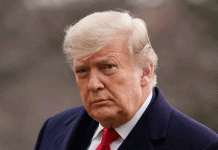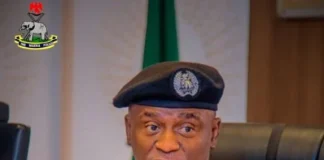China’s broadcasting regulator has banned BBC World News, accusing it of flouting guidelines over a hard-hitting report on Beijing’s treatment of the country’s Uighur minority.
The decision came just days after Britain’s own regulator revoked the licence of Chinese broadcaster CGTN for breaking UK law on state-backed ownership, and provoked angry accusations of censorship from London.
Thursday’s move will do little to improve relations between the two countries, which have been increasingly strained by China’s introduction of a security law in Britain’s former colony, Hong Kong.
London’s decision to offer millions of Hong Kongers a pathway to British citizenship has only further infuriated Beijing, which has accused Britain of behaving with a “colonial mentality”.
London has also angered Beijing by banning Chinese telecoms group Huawei from involvement in its 5G network after the United States raised spying fears.
In an overnight statement, Beijing’s National Radio and Television Administration said BBC World News reports about China were found to “seriously violate” broadcast guidelines.
That includes “the requirement that news should be truthful and fair” and not “harm China’s national interests”.
The administrator “does not permit the BBC to continue broadcasting in China, and does not accept its new annual application for broadcast”, it added.
READ ALSO: Crypto Ban: SEC Suspends Assessment Of Digital Assets
‘Informed citizenry’
The BBC said it was “disappointed” with the move, which applies to mainland China, where the channel is already censored and restricted to international hotels.
“The BBC is the world’s most trusted international news broadcaster and reports on stories from around the world fairly, impartially and without fear or favour,” a BBC spokeswoman said.
UK Foreign Secretary Dominic Raab called the ban “an unacceptable curtailing of media freedom”.
“China has some of the most severe restrictions on media and internet freedoms across the globe, and this latest step will only damage China’s reputation in the eyes of the world,” he added.
In Washington, State Department spokesman Ned Price denounced the BBC ban and called on China to allow an “informed citizenry” that can freely exchange ideas.
“We call on the PRC and other nations with authoritarian controls over their population to allow their full access to the internet and media,” Price told reporters, referring to the People’s Republic of China.
On Friday, public broadcaster Radio Television Hong Kong (RTHK) — an independent but government-funded service based in the former British territory — also announced it would “suspend the relay of BBC World Service and BBC News Weekly”.
British lawmaker Tom Tugendhat, a hawk on UK-China ties, criticised Beijing’s move as “both regrettable and entirely unsurprising”.
“While this is a largely symbolic tit-for-tat retaliatory move, the deteriorating environment for journalism in China is a concern for us all,” he told AFP.
READ ALSO: Egypt Received Seven Times More FDI Than Nigeria
Witness testimony
Besides its reporting on Xinjiang, the BBC has also aired a hard-hitting documentary accusing China of covering up the origins of the Covid-19 pandemic around the city of Wuhan in late 2019.
It published its report detailing harrowing accounts of torture and sexual violence against Uighur women in Chinese camps in Xinjiang on February 3.
The lengthy investigation based on witness testimonies reported claims of systematic rape, sexual abuse and torture of female detainees by police and guards in the western region.
The area is home to the mainly Muslim Uighur minority and has seen a sweeping security crackdown by Chinese forces in recent years.
Rights groups believe at least one million Uighurs and other Turkic-speaking Muslims are incarcerated in camps in Xinjiang.
The Chinese foreign ministry has dismissed the BBC investigation as “false”.
Britain’s government said it showed “clearly evil acts”, and there was strong condemnation from the US State Department.
But London has resisted pressure to follow the current and former US administrations and call the treatment of the Uighurs “genocide”.
China is accused of compelling Uighurs to parrot Communist propaganda and renounce Islam, of forcibly sterilising women and imposing a regime of forced labour.
After initially denying the camps existed, China’s government acknowledged them, saying they were vocational training centres aimed at combating Islamic extremism.
China last week said British regulator Ofcom’s decision to pull CGTN from the airwaves was based on “ideological prejudice and political reasons”.
AFP













